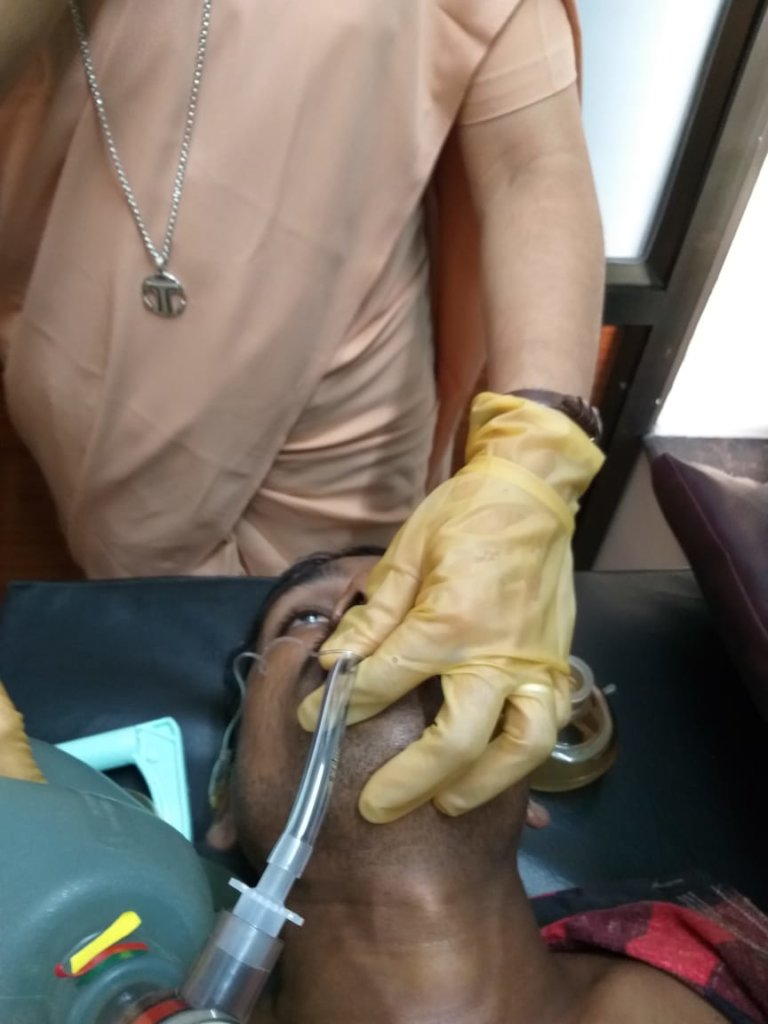By Leena Fernandez | Project Leader
For Anjali Health Centre (AHC), it has been life as usual. The villagers around AHC have been coming to the hospital as they used to before the crisis, but in lower numbers. As most of their livelihood avenues have shrivelled away to almost nothing and they are confined to their homes and villages, the incidents of accidents and work-related ailments have significantly reduced. A situation more bitter than sweet.
Snakebite cases have also been coming in, but thankfully, the months of April and May saw the total of only four venomous bite cases. Of these, three cases were successfully treated and discharged. One patient, a 32-year-old male, could not be saved. Almost four hours had elapsed since the bite and the patient was already critical when he arrived at the hospital.
The one we lost
Babulal was a 32-year-old man residing in a small village about 30-40 km from AHC. He sustained a krait bite on his left hand in the early hours of 17th April 2020. Although he was bitten at 4 am, he arrived at the hospital at 7.45 am, almost four hours later. The family had chosen to visit a local faith healer and he was brought to AHC only when he failed to respond to the faith healer’s rituals.
Krait venom is neurotoxic and paralyses muscle tissue, including those that control respiration and circulation. When Babulal reached AHC, he was in the final stages of collapse. There was severe ptosis and he could not open his eyes. The muscles controlling eyelid movement were paralysed. He was unconscious and his breathing was shallow, blood pressure was too low for the machine to record and pulse was erratic and feeble.
The doctor at the centre worked on resuscitating him with oxygen, medications and CPR (cardiopulmonary resuscitation) but it did not help. Babulal was declared dead at 8.25 am, less than an hour after he reached AHC.
In retrospect, the reason for Babulal’s untimely demise is quite obvious - the hours spent fruitlessly at the faith healer’s. The first 60 minutes after a bite is called the ‘Golden Hour’ when the patient has maximum chances of survival given proper treatment. Even though his village was less than an hour away, Babulal was long past the Golden Hour when he reached AHC.
Now, more than ever we see the need to reach out to rural India and educate communities on how to respond to a snakebite emergency and also avoid potential human-snake conflict situations. The awareness workshops we had been conducting had picked up momentum but we had to suspend operations due to the Covid-19 lockdown. Snakebite cases peak during the monsoons and the rains have already hit India. Our field persons will be restarting workshops from next month keeping in mind this urgency. We will keep you posted on the progress that we make through subsequent reports.
We hope that you and your loved ones have been safe during this global crisis that we are facing together and, most of all, we are so very grateful to you for your continued support despite all the difficulty and worry you must be contending with.
Please do feel free to reach out to us with your thoughts with an email to support@ties.org.in. We would be more than happy to hear from you.
Project reports on GlobalGiving are posted directly to globalgiving.org by Project Leaders as they are completed, generally every 3-4 months. To protect the integrity of these documents, GlobalGiving does not alter them; therefore you may find some language or formatting issues.
If you donate to this project or have donated to this project, you can receive an email when this project posts a report. You can also subscribe for reports without donating.
Support this important cause by creating a personalized fundraising page.
Start a Fundraiser